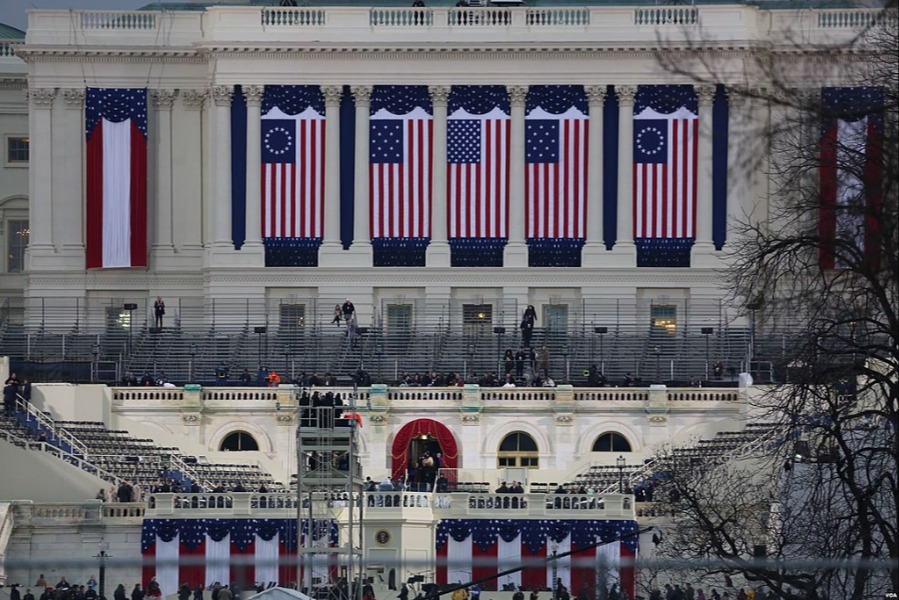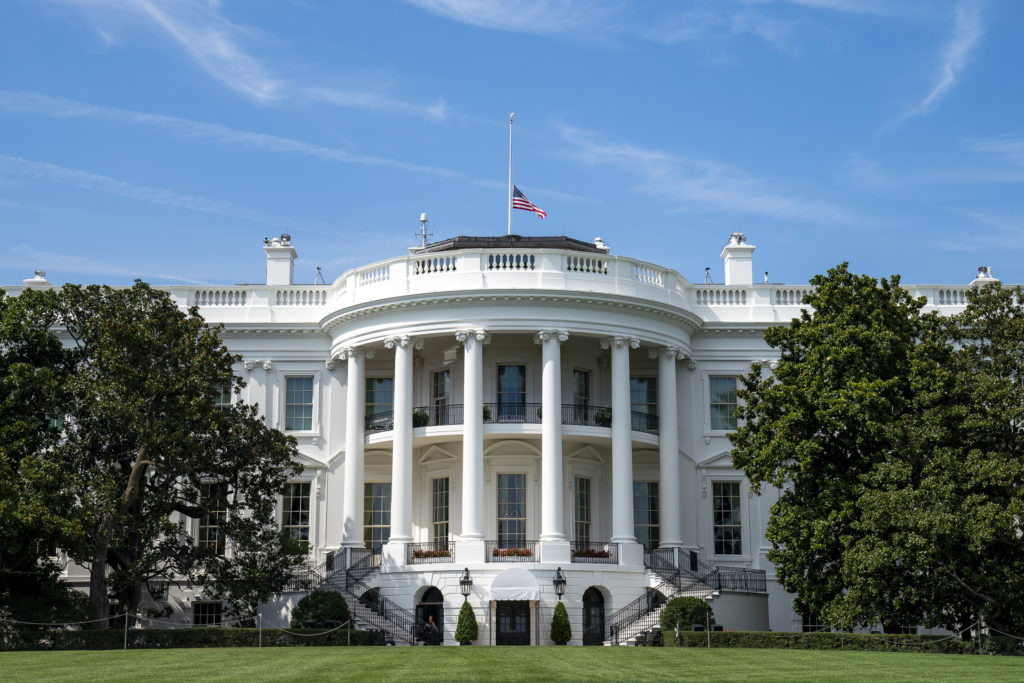The Situation: Our Tempestuous Day
A 200-year-old sonnet and our political reality.

Published by The Lawfare Institute
in Cooperation With

An old, mad, blind, despised, and dying King;
Princes, the dregs of their dull race, who flow
Through public scorn—mud from a muddy spring;
Rulers who neither see nor feel nor know,
But leechlike to their fainting country cling
Till they drop, blind in blood, without a blow.
A people starved and stabbed in th' untilled field;
An army, whom liberticide and prey
Makes as a two-edged sword to all who wield;
Golden and sanguine laws which tempt and slay;
Religion Christless, Godless—a book sealed;
A senate, Time’s worst statute, unrepealed—
Are graves from which a glorious Phantom may
Burst, to illumine our tempestuous day.
The Situation on Wednesday offered friendly advice to the new attorney general.
Today, let’s talk poetry.
Specifically, let’s consider England in 1819—for so Percy Bysshe Shelley named the above sonnet—and the United States in 2025.
Shelley’s poem contains one sentence. The first 12 lines form a list of eight items that make up the rot in English society and government as he saw it at the time. Each sentence fragment constitutes a part of his bill of particulars against a society he saw as crying out for reform.
If the poet were writing this verse today, about these United States, that bill of particulars would be somewhat different. The American people aren’t starved or stabbed in fields and those fields, in any event, are not going untilled—though they may yet if the administration deports enough farmworkers. The U.S. armed forces are not suppressing American liberties. Our “princes,” such as they are, mostly are not hereditary “mud from a muddy spring”—though there are some notable exceptions—but, rather, plutocrats who think of themselves as self-made and purport to speak in the name of meritocracy.
Yet the poem retains its angry brilliance across 200 years because, well, there are these lines that just cry out across the centuries to contemporary Americans—starting with the first one: “An old, mad, blind, despised, and dying King.”
Poor George III was only one year from his death at the time Shelley skewered him thus. I have never studied the details of the madness of King George. But I would venture to guess that at least in his public persona, he never did anything as completely crazy as proposing that the United States seize the Gaza Strip and displace 2 million Palestinians to make room for real estate development, or buy Greenland, or annex Canada. He never next let Elon Musk loose on the British government’s payment systems. He never sought to dismantle his government’s foreign policy apparatus.
There is the line “Religion Christless, Godless—a book sealed.” Who that has watched the contemporary American evangelical adoration of the MAGA can fail to pause over these words and gaze into the mirror?
And then there’s the line—the second half of the rhyming couplet immediately following the religion item—that, for the past decade or so, has tripped me up every time: “A senate, Time’s worst statute, unrepealed.”
Shelley was, of course, writing about the British Parliament. But I have no words more useful to utter about a Senate committee that would vote to confirm Tulsi Gabbard to be director of national intelligence.
I have no pithier way to describe a Senate committee that would vote to confirm a man who doesn’t believe in vaccines to be secretary of health and human services.
I have no better way to describe a Senate that appears poised to vote to place a political apparatchik as director of the FBI.
Indeed, I have no better description of a Senate that would vote to confirm any presidential nominees while the president is busy dismantling federal agencies authorized and funded by Congress, impounding appropriated federal funds, and firing career civil servants. Except perhaps these: “Rulers who neither see nor feel nor know/But leechlike to their fainting country cling/Till they drop, blind in blood, without a blow.”
Shelley’s poem ends optimistically. His list of societal degradations resolves into a couplet that declares them all “graves from which a glorious Phantom may/Burst, to illumine our tempestuous day.”
Shelley died in 1822, only a couple of years after George III—and long before any glorious phantom burst to create a just society out of the United Kingdom.
I’m not much of a believer in glorious phantoms, in any event—especially not in waiting for them.
So I will say this about America in 2025, and its mad king, and its Senate, and its rulers and its godless religiosity: These are the conditions through which a country limps, hoping to endure its tempestuous day.
The Situation continues tomorrow.





